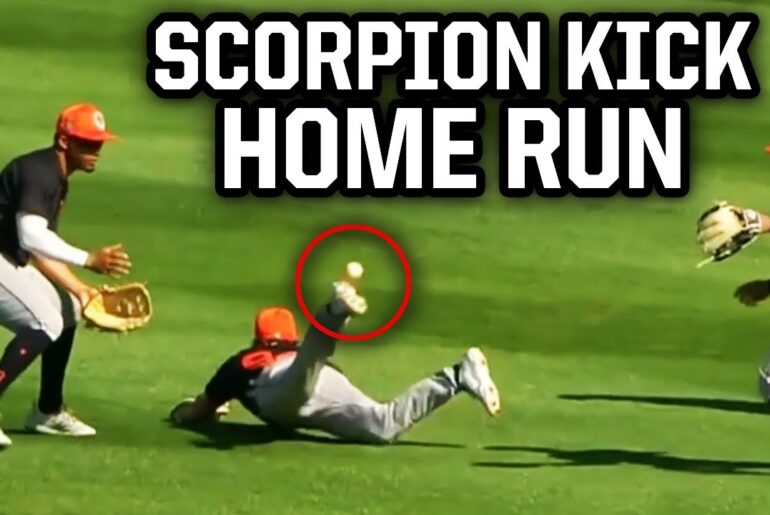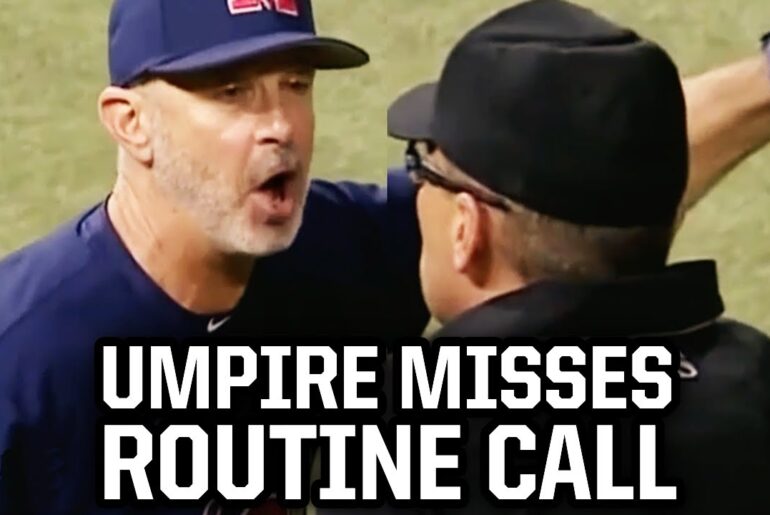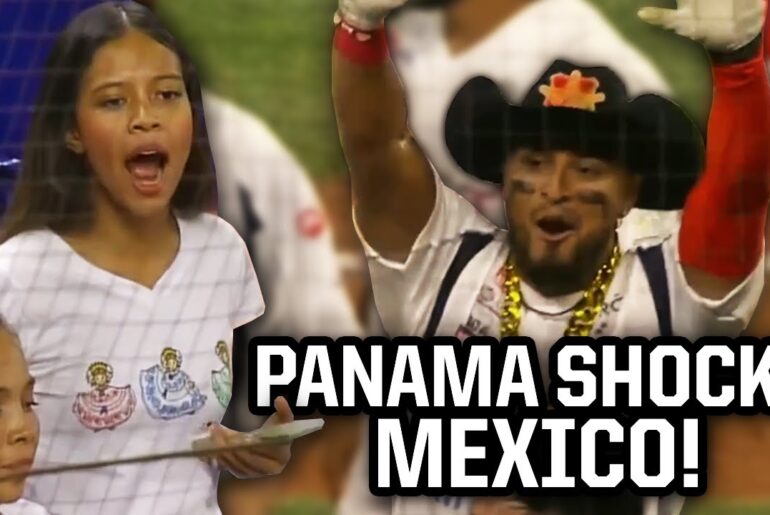In the world of sports, there are moments that stand out not only for their athletic prowess but also for the unexpected and comical situations that arise. One such incident occurred during a baseball game earlier this season, involving Salvador Perez, an umpire named Bill Welkey, and the manager, Corbell. The miscommunication that unfolded on the field led to a series of amusing exchanges and left everyone involved bewildered. Let’s dive into the details and unravel this hilarious incident.
The Unusual Home Run
It all began when Salvador Perez stepped up to bat with two runners on base and no outs. He hit the ball, and although it appeared to stay in the park, the umpires ruled it as a home run. As Perez rounded the bases, expressing his gratitude to the divine and acknowledging his teammates, something caught the attention of the spectators. There was a peculiar section of the stadium wall with a gap between the wall’s line and the actual pole. It seemed to be part of the ground rules, as hitting this cushion in the gap was considered a home run. While this peculiar configuration perplexed some viewers, umpire Bill Welkey confirmed the ruling, and the call stood.
Corbell’s Confusion and Conversation with Bill
Corbell, the manager of the opposing team, couldn’t help but express his astonishment at the ruling. He wanted to discuss the decision with umpire Bill Welkey, calling out to him from the dugout. However, it was challenging to decipher their conversation due to the lack of a front angle. Corbell seemed perplexed, covering his mouth, while Bill attempted to explain the ruling. The confusion was evident, and Corbell struggled to make sense of what was being said.
“What Do You Want Me to Do?”
Bill Welkey, perhaps growing impatient with the discussion, posed a question to Corbell, asking, \”What do you want me to do at this point?\” Corbell, taken aback, responded emphatically, stating that he didn’t want to get ejected for his protests. In baseball, it is not uncommon for managers to argue with umpires to motivate their team or express their dissatisfaction. Sometimes, a manager may even goad the umpire into ejecting them intentionally. However, Corbell had no such intentions; he genuinely wanted to avoid being thrown out of the game.
The Misheard Response
Unfortunately, the miscommunication took a humorous turn. Bill Welkey, mishearing Corbell’s response, thought he had agreed to being ejected. In a somewhat baffling exchange, Bill told Corbell that he would grant his request and promptly ejected him from the game. The catcher’s reaction to this turn of events was priceless, capturing the bewilderment felt by everyone witnessing the scene. Corbell, realizing the misunderstanding, protested, stating, \”I said I don’t want to get run for this expletive!\” However, it was too late to rectify the situation.
Apologies and Aftermath
As Corbell made his way back to the dugout, he carried a look of exasperation on his face. He would now have to explain the incident to his coaching staff, who would undoubtedly be confused by what had just occurred. The entire episode left Corbell and those around him in disbelief. The unintentional exchange of words between Corbell and Bill Welkey had caused a hilarious and unexpected chain of events.
Conclusion
In the world of sports, miscommunications and unexpected incidents can sometimes provide moments of entertainment and amusement. The baseball game in question witnessed a series of misunderstandings between the manager, Corbell, and umpire Bill Welkey, resulting in Corbell’s unintended ejection. The incident serves as a reminder that even in the midst of intense competition, lighthearted moments can arise and bring a smile to the faces of players and spectators alike.



